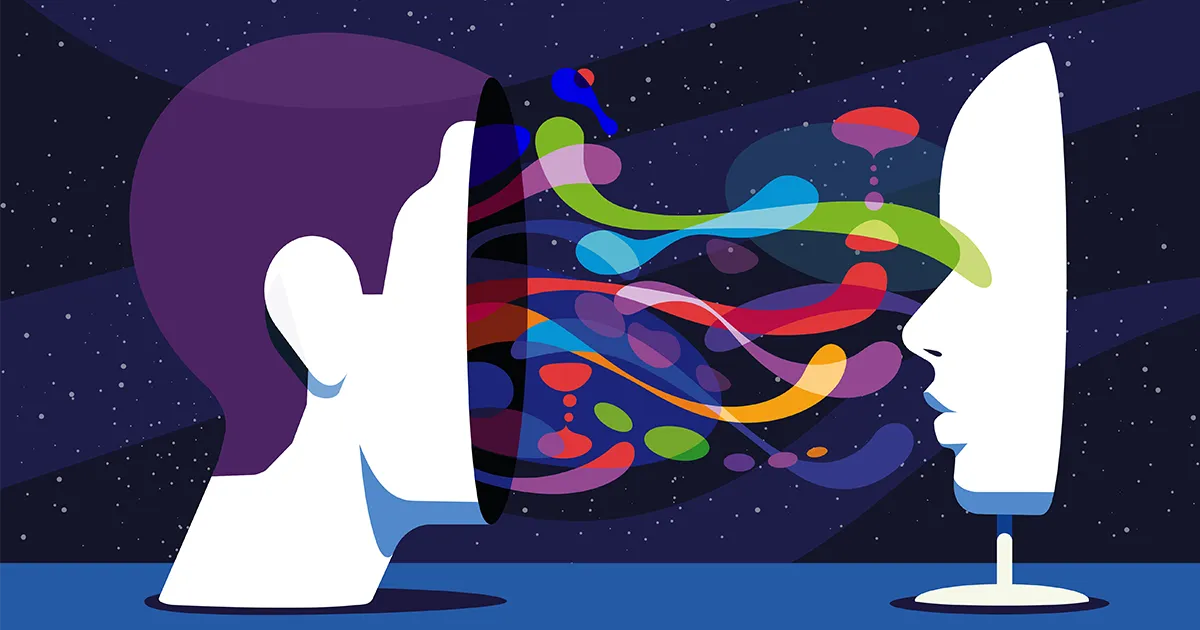问题:意图、意识、认识和思想之间的区别?
问:意图、意识、认识和思想之间的区别?
Paul Jeong回答: 为了简明扼要地整合 "意图"、"意识"、"觉知 "和 "想法 "之间的区别:
意图: 有目的的目标,指导行动实现预期结果。
意识: 包括思想、感觉和知觉在内的整体意识。
觉知: 对内部和外部经验的认识和观察。
想法: 心理过程,包括信念、判断和想象。
这里有一些非常简短的要点,可以抓住它们的本质:
意图: 为实现预期结果而制定的有目的的目标或计划。
意识: 意识到并能够思考自己的存在、感觉和体验的状态。
觉知: 注意或感知事件、物体或感官模式的能力。
想法: 涉及推理、记忆或想象的心理过程。
在教练过程中,尤其是在 PJ 意识教练框架内,这些概念相互交织,以促进个人成长、正念和自我意识。教练指导客户利用他们的意图,扩展他们的意识,培养更深层次的觉知,并有效地管理他们的思想,从而实现生活的转变。
【意图】
PJ 意识教练的观点: 意向是指有目的地将注意力引向所期望的结果,强调定向思维塑造现实的力量。在 PJAC 中,意向是个人发展的基础步骤,它鼓励个人确定清晰、有意义的目标,这些目标与他们更深层次的价值观和愿望相一致。这一过程培养了一种积极主动的心态,激励人们采取与个人成长和成就感相一致的行动。
【意识】
科学与 PJAC 融合: 意识包括对个人内外世界的感知状态。从 PJAC 的角度来看,扩展意识包括培养对自己的思想、情感和经历的更深刻理解。这种意识的增强能让个人认识到自己的模式,并有可能带来变革性的洞察和改变。教练过程支持个人探索其意识的深度,开启自我意识和潜能的新层次。
【觉知】
正念与 PJAC 连接: 觉知,尤其是纯粹或非判断性观察的形式,与正念练习密切相关。PJAC 强调培养观察者心态的重要性,在这种心态下,个人学会目睹自己的想法和情绪,而不会立即做出反应或产生依恋。这种技能对于情绪调节、决策以及促进与自己和他人更深层次的联系至关重要。通过增强意识,教练客户可以更轻松、更清晰地应对生活中的挑战。
【思维】
认知过程和 PJAC 方法: 思维,包括信念、判断和想象,构成了意识的内容。在教练过程中,重点通常是识别和挑战阻碍个人成长的限制性信念和思维模式。PJAC 鼓励反思性练习,在练习中观察、质疑并在必要时重组思想,以支持积极的改变和个人发展目标。这种用心参与思考的方式有助于摆脱自我设限,培养成长心态。
【正念】
将正念融入教练:正念,即不做任何判断,全身心投入当下的练习,是 PJAC 的关键组成部分。它包括记住将自己的注意力拉回到当下,培养一种开放和好奇的状态。在教练过程中,正念练习可以帮助客户培养内心的平和感、韧性和更高的意识,使他们能够以更大的同情心和智慧来应对生活中的挑战。
教练的意义
在 PJ 意识教练中,这些概念交织在一起,形成了个人发展的整体方法。教练可以指导客户进行练习和反思,以增强意向性、意识、觉察力以及对思想的关注。这种综合方法能帮助客户更好地了解自我、平衡情绪,并与自己的核心价值观和目标保持一致。
通过了解和培养每个方面--意向、意识、觉察力、思想和正念--个人可以踏上更有意识、更专注的生活方式之旅。这一旅程与 PJAC 所鼓励的原则和实践密切相关,为个人转型和提高幸福感提供了一条途径。
--------------英文版----------
 Question: differences between intention, consciousness, awareness, and thoughts?
Question: differences between intention, consciousness, awareness, and thoughts?
PJ Answer:
To concisely integrate the differences between intention, consciousness, awareness, and thoughts, here are very short bullet points that capture their essence:
Intention: Purposeful aim guiding actions towards a desired outcome.
Consciousness: Total awareness encompassing thoughts, feelings, and perceptions.
Awareness: Recognition and observation of internal and external experiences.
Thoughts: Mental processes including beliefs, judgments, and imaginations.
Intention: A purposeful aim or plan towards a desired outcome.
Consciousness: The state of being aware of and able to think about one's existence, sensations, and experiences.
Awareness: The capacity to notice or perceive events, objects, or sensory patterns.
Thoughts: Mental processes involving reasoning, remembering, or imagining.
In coaching, especially within the PJ Awareness Coaching framework, these concepts are interwoven to facilitate personal growth, mindfulness, and self-awareness. Coaches guide clients to harness their intentions, expand their consciousness, cultivate deeper awareness, and manage their thoughts effectively for transformative life changes.
Intention
PJ Awareness Coaching Perspective: Intention is about purposefully directing one's focus towards desired outcomes, emphasizing the power of directed thought to shape reality. Within PJAC, intention acts as a foundational step in personal development, encouraging individuals to define clear, meaningful goals that align with their deeper values and desires. This process fosters a proactive mindset, motivating actions that are aligned with personal growth and fulfillment.
Consciousness
Scientific and PJAC Integration: Consciousness encompasses the state of being aware of one's internal and external worlds. From a PJAC standpoint, expanding consciousness involves cultivating a deeper understanding of one's thoughts, feelings, and experiences. This enhanced consciousness enables individuals to recognize their patterns, potentially leading to transformative insights and changes. The coaching process supports individuals in exploring the depths of their consciousness, unlocking new levels of self-awareness and potential.
Awareness
Mindfulness and PJAC Connection: Awareness, particularly in the form of pure or non-judgmental observation, is closely related to mindfulness practices. PJAC emphasizes the importance of developing an observer-like state of mind, where individuals learn to witness their thoughts and emotions without immediate reaction or attachment. This skill is crucial for emotional regulation, decision-making, and fostering a deeper connection with oneself and others. By enhancing awareness, coaching clients can navigate life's challenges with greater ease and clarity.
Thoughts
Cognitive Processes and PJAC Approach: Thoughts, including beliefs, judgments, and imaginings, constitute the content of consciousness. In coaching, the focus is often on identifying and challenging limiting beliefs and patterns of thinking that hinder personal growth. PJAC encourages a reflective practice where thoughts are observed, questioned, and, if necessary, restructured in a way that supports positive change and personal development goals. This mindful engagement with one's thoughts is instrumental in breaking free from self-imposed limitations and fostering a growth mindset.
Mindfulness
Integrating Mindfulness into Coaching: Mindfulness, or the practice of being present and fully engaged with the current moment without judgment, is a key component of PJAC. It involves remembering to bring one's attention back to the present, fostering a state of openness and curiosity. In coaching, mindfulness practices help clients cultivate a sense of inner peace, resilience, and heightened awareness, enabling them to respond to life's challenges with greater compassion and wisdom.
Coaching Implications
In the context of PJ Awareness Coaching, these concepts interweave to form a holistic approach to personal development. Coaches can guide clients through exercises and reflections that enhance intentionality, consciousness, awareness, and mindful engagement with thoughts. This integrated approach supports clients in achieving greater self-understanding, emotional balance, and alignment with their core values and goals.
By understanding and cultivating each aspect—intention, consciousness, awareness, thoughts, and mindfulness—individuals can embark on a journey toward a more conscious and intentional way of living. This journey aligns closely with the principles and practices encouraged in PJAC, offering a pathway to personal transformation and enhanced well-being.


